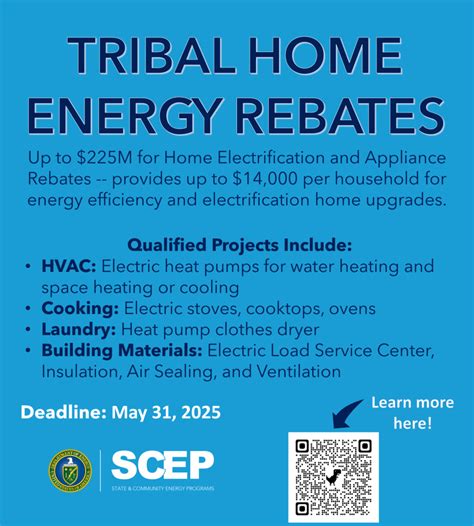Powering Up: How Home Electrification Can Save You Money and the Environment
As the world continues to grapple with climate change and escalating energy costs, homeowners are increasingly turning to electrification as a viable solution. Home electrification refers to the process of converting fossil fuel-based systems in a household—such as heating, cooking, and transportation—to electric alternatives. This article explores how home electrification can lead to financial savings, enhance energy efficiency, and contribute positively to the environment.
The Financial Benefits of Home Electrification
Many households are unaware of the substantial financial advantages associated with electrification. One of the primary ways electrification saves money is through reduced utility bills. Electric appliances, such as heat pumps and electric stoves, are often more energy-efficient compared to their fossil-fuel counterparts. For example, heat pumps can be three to four times more efficient than traditional furnaces, meaning they deliver more heat per unit of energy consumed.
Incentives and Rebates
In addition to savings on utility bills, numerous federal and state programs provide incentives and rebates for homeowners who choose to electrify their homes. These can significantly reduce the upfront costs associated with purchasing and installing electric appliances. For instance, the Inflation Reduction Act offers tax credits for electrification projects, making it more accessible for homeowners to make the switch.
Long-Term Savings
Home electrification also leads to long-term savings on maintenance costs. Electric appliances have fewer moving parts than gas-powered options, which typically require more frequent repairs and maintenance. Moreover, as the grid continues to incorporate more renewable energy sources, electric rates are expected to stabilize or even decrease in the long run, offering further financial relief to electrified homes.
Environmental Impact
Switching to electric appliances contributes significantly to reducing carbon emissions. The burning of fossil fuels generates a substantial amount of greenhouse gases that adversely affect the environment. By transitioning to electric alternatives powered by renewable energy sources like wind and solar, homeowners play a pivotal role in combatting climate change.
According to the U.S. Environmental Protection Agency (EPA), residential buildings account for a significant portion of greenhouse gas emissions. By electrifying these homes, homeowners can reduce their carbon footprint and support a sustainable future. Furthermore, electric heating and cooking options help lower indoor air pollution, creating a healthier living environment.
Enhanced Energy Efficiency
Home electrification promotes greater energy efficiency. Many modern electric appliances are designed with cutting-edge technology that minimizes energy consumption. For example, Induction cooktops provide faster cooking times while using less energy than traditional gas stoves. Additionally, electric heat pumps can provide both heating and cooling, eliminating the need for separate systems and lowering overall energy use.
Energy Independence
By transitioning to home electrification, homeowners can also gain a degree of energy independence. With advancements in energy storage technology, such as home batteries that work in conjunction with solar panels, homes can produce and store their energy. This leads to less reliance on the traditional power grid and protects homeowners from fluctuating energy prices.
Challenges in Electrification
While the benefits of home electrification are compelling, there are challenges that homeowners need to consider. Transitioning from gas to electric systems may require upgrades to existing electrical infrastructure, which can be an additional cost. Furthermore, in some areas, the availability of reliable and affordable renewable energy may be limited.
Another challenge is the upfront cost of electric appliances and systems, which can initially deter homeowners from making the switch. However, with financial incentives and long-term savings, investing in electrification can still prove beneficial.
Conclusion
Home electrification offers a unique opportunity to save money while also contributing to a healthier planet. By converting fossil-fuel dependent systems to electric alternatives, homeowners can reduce their utility costs, take advantage of government incentives, and minimize their environmental impact. The transition may involve certain challenges, but the long-term financial and ecological benefits make electrification a wise investment for the future. Ultimately, by powering up their homes with electricity, homeowners are taking significant strides toward achieving energy efficiency, enhanced comfort, and environmental stewardship.
FAQs
1. What is home electrification?
Home electrification is the process of replacing fossil-fuel based appliances and systems in a home with electric alternatives. This includes heating, cooking, and transportation systems.
2. How does home electrification save money?
Home electrification saves money through lower utility bills, available incentives and rebates, and reduced long-term maintenance costs associated with electric appliances.
3. Can electrifying my home help the environment?
Yes, switching to electric appliances reduces carbon emissions and supports the use of renewable energy sources, contributing positively to the environment.
4. Are there any incentives for electrifying my home?
Yes, many federal and state programs offer incentives, rebates, and tax credits to homeowners who choose to electrify their homes.
5. What are some challenges in transitioning to electrification?
Challenges include the upfront costs of electric appliances, potential upgrades needed for electrical infrastructure, and limited renewable energy availability in some areas.
This code provides a structured article about home electrification, including various sections, a conclusion, and frequently asked questions, all formatted for use in WordPress.
Download Home Electrification And Appliance Rebates
